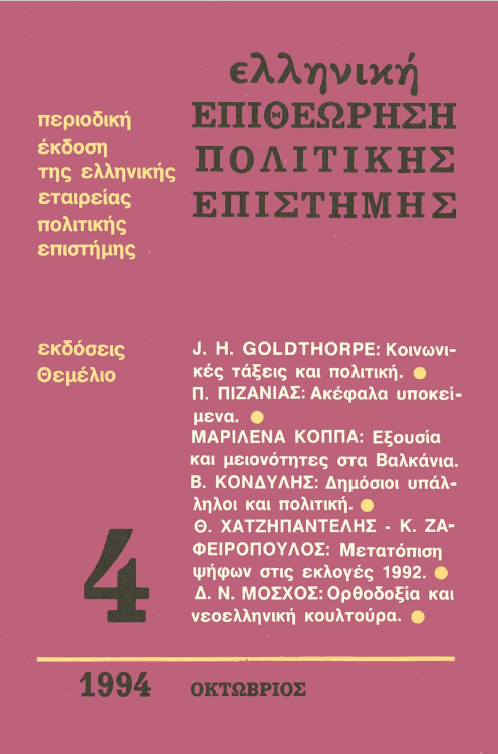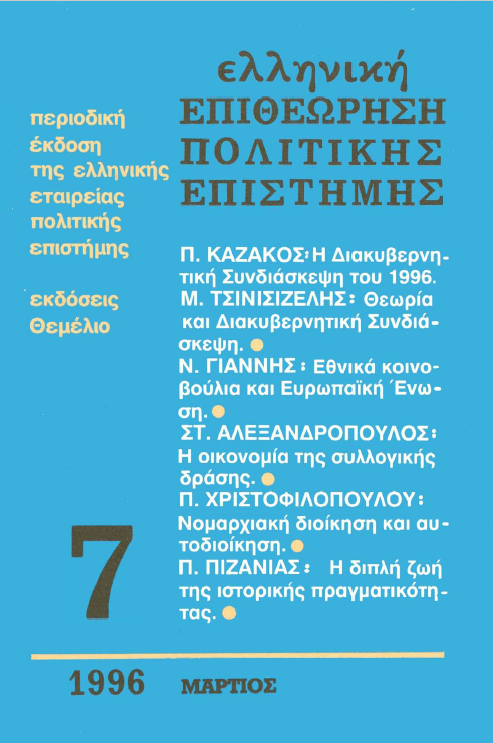Ακέφαλα υποκείμενα. Περιήγηση στις πολιτικές σχέσεις με οδηγό την υποκειμενικότητα

Δημοσιευμένα:
Dec 4, 2017
Λέξεις-κλειδιά:
Πολιτικές επιστήμες
Περίληψη
Δεν διατίθεται περίληψη στα ελληνικά
Λεπτομέρειες άρθρου
- Πώς να δημιουργήσετε Αναφορές
-
Πιζάνιας Π. (2017). Ακέφαλα υποκείμενα. Περιήγηση στις πολιτικές σχέσεις με οδηγό την υποκειμενικότητα. Ελληνική Επιθεώρηση Πολιτικής Επιστήμης, 4(2), 25–57. https://doi.org/10.12681/hpsa.15295
- Τεύχος
- Τόμ. 4 (1994)
- Ενότητα
- Άρθρα

Αυτή η εργασία είναι αδειοδοτημένη υπό το CC Αναφορά Δημιουργού – Μη Εμπορική Χρήση – Παρόμοια Διανομή 4.0.
Οι συγγραφείς θα πρέπει να είναι σύμφωνοι με τα παρακάτω: Οι συγγραφείς των άρθρων που δημοσιεύονται στο περιοδικό διατηρούν τα δικαιώματα πνευματικής ιδιοκτησίας επί των άρθρων τους, δίνοντας στο περιοδικό το δικαίωμα της πρώτης δημοσίευσης. Άρθρα που δημοσιεύονται στο περιοδικό διατίθενται με άδεια Creative Commons 4.0 και σύμφωνα με την οποία μπορούν να χρησιμοποιούνται ελεύθερα, με αναφορά στο/στη συγγραφέα και στην πρώτη δημοσίευση για μη κερδοσκοπικούς σκοπούς και με δικαίωμα τροποποίησης μόνο με παρόμοια διανομή (αν αναμείξετε, τροποποιήσετε, ή δημιουργήσετε πάνω στο υλικό, πρέπει να διανείμετε τις δικές σας συνεισφορές υπό την ίδια άδεια όπως και το πρωτότυπο).Λήψεις
Τα δεδομένα λήψης δεν είναι ακόμη διαθέσιμα.



